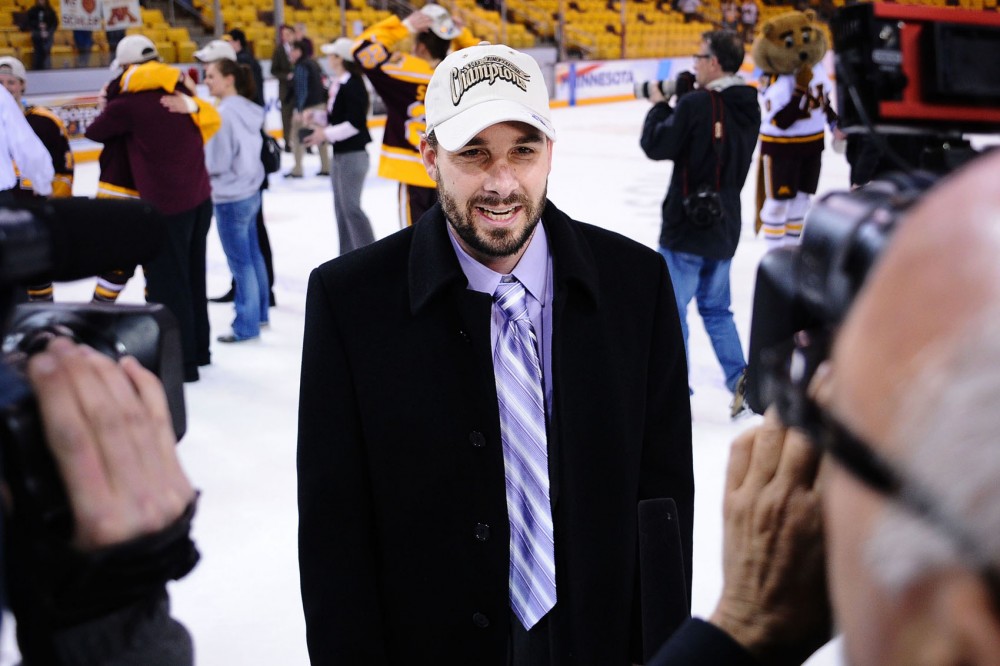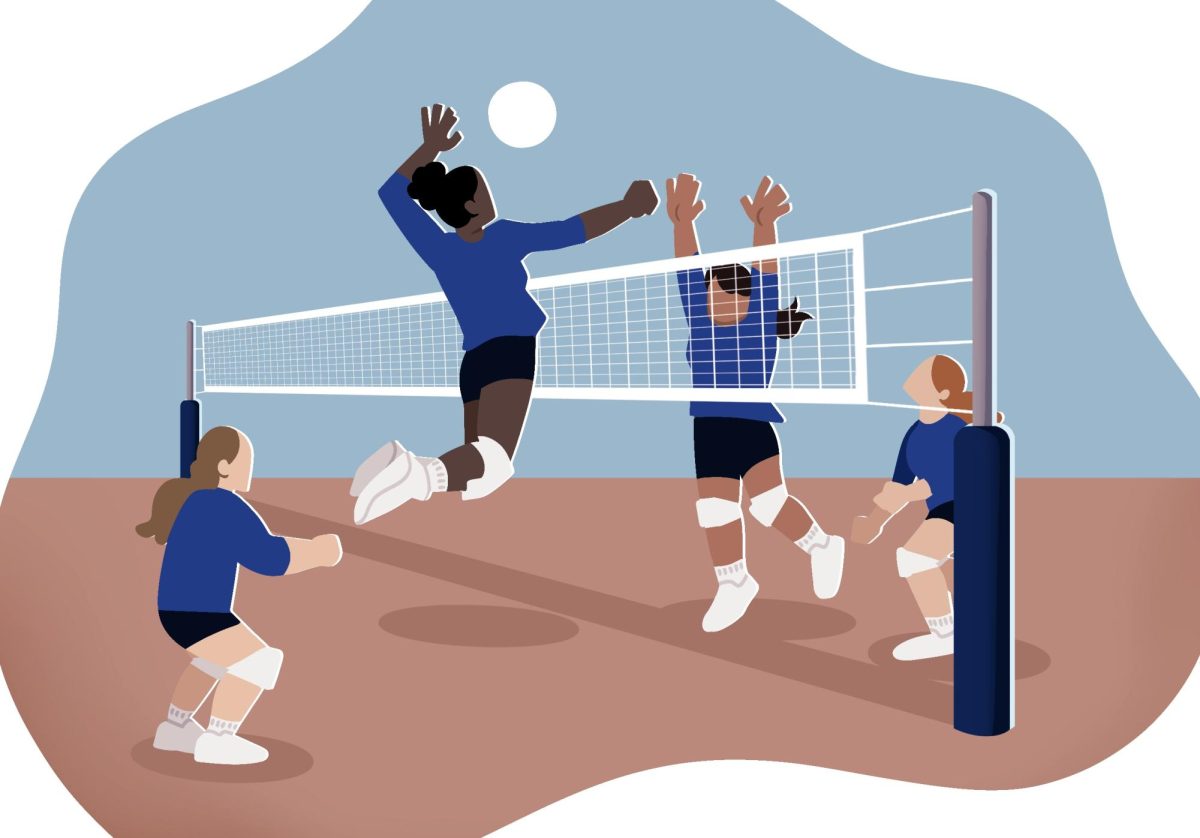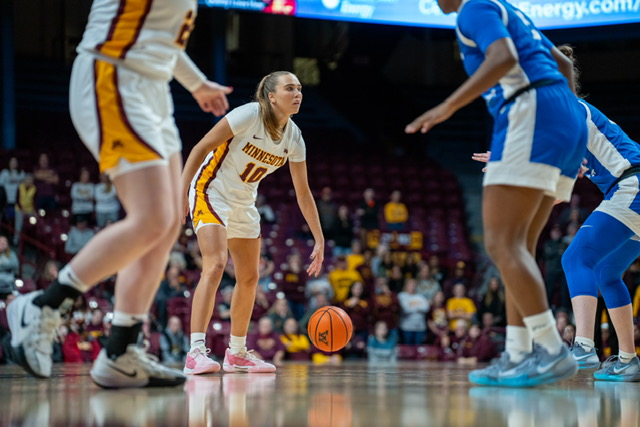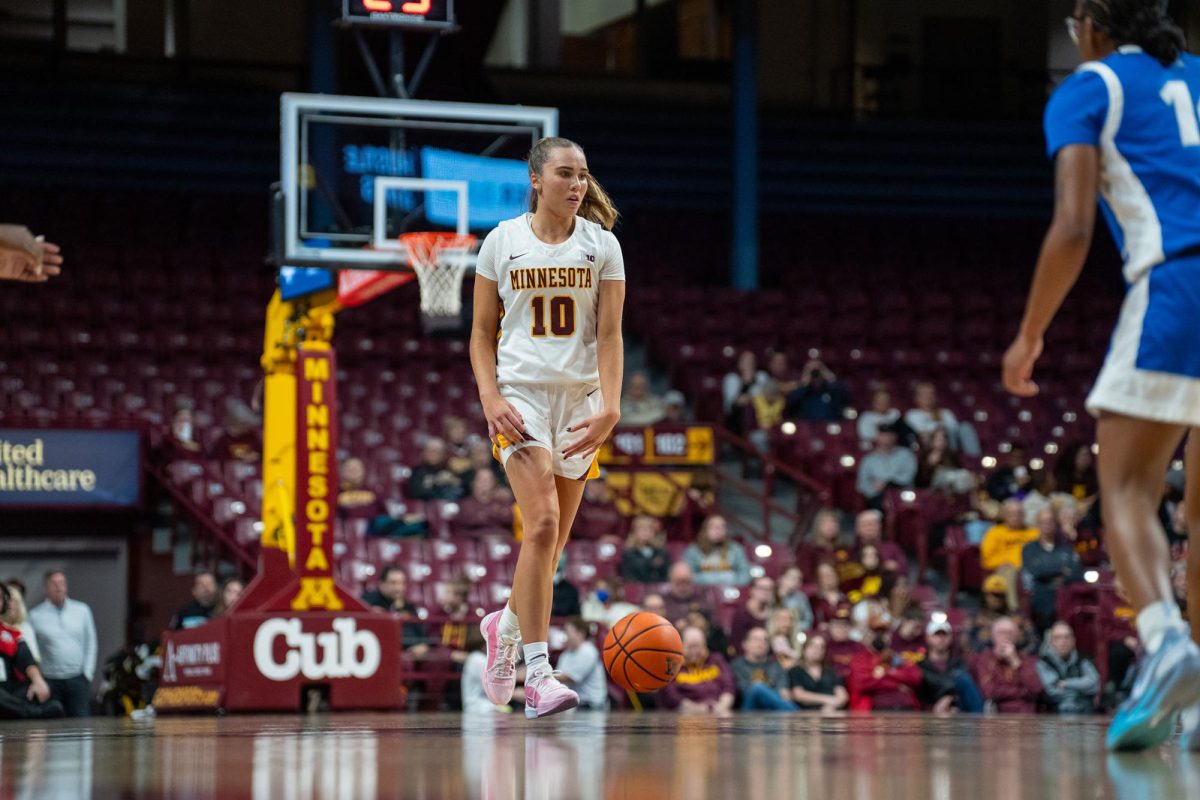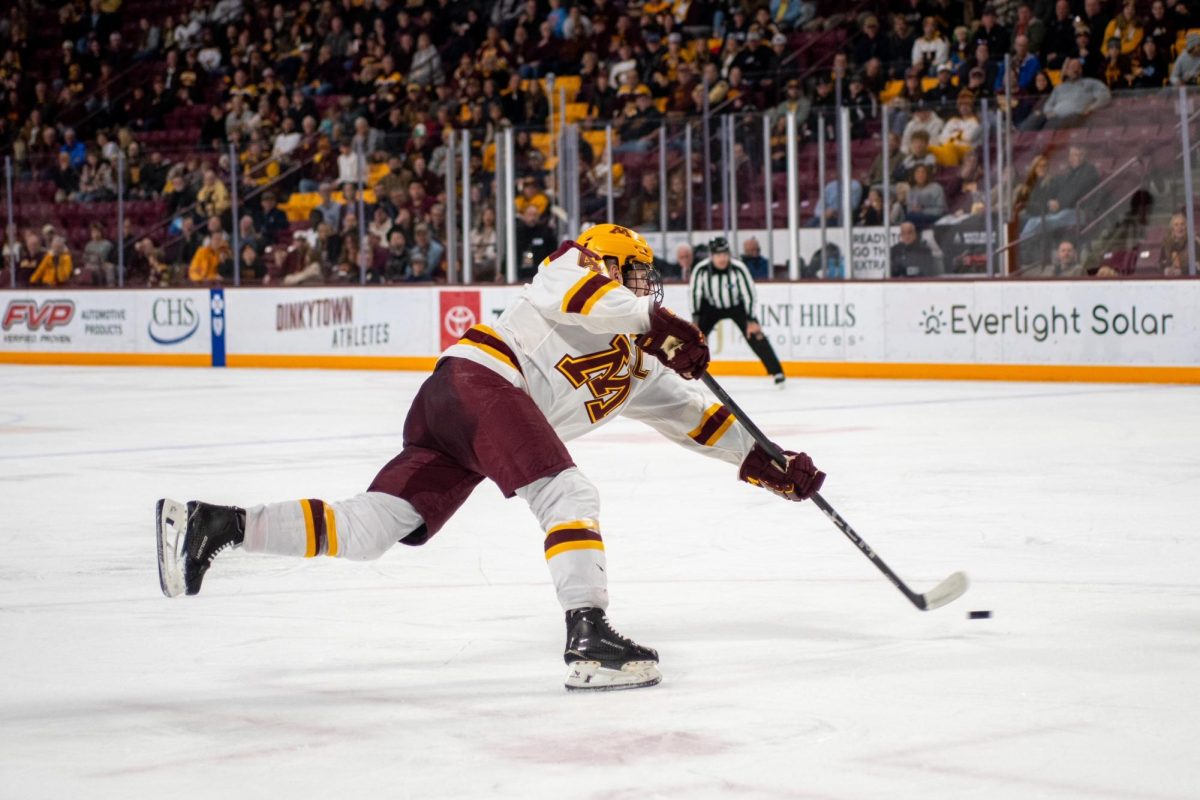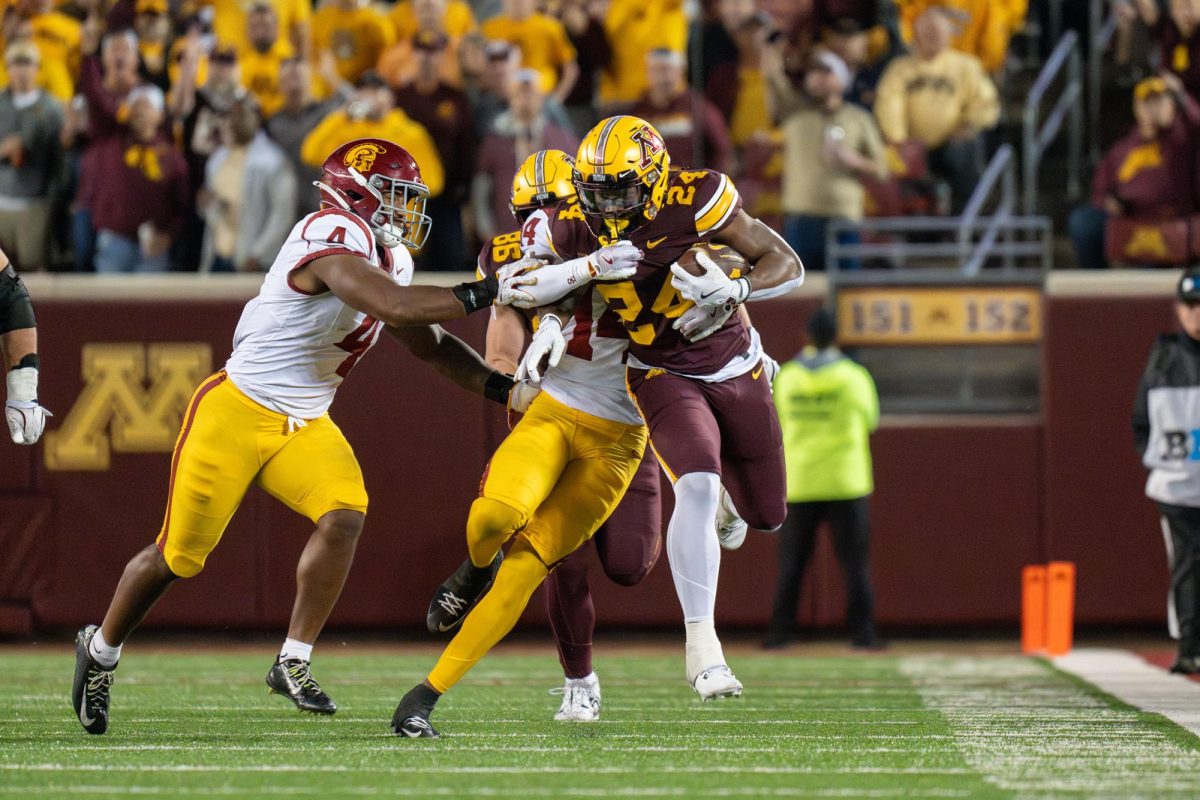In the 1980s, every kid in Burlington, Ontario, wanted to be Wayne Gretzky, but Brad Frost wanted to be a gym teacher who would “hopefully do some coaching.”
Now the Gophers’ head women’s hockey coach, Frost had no idea he’d lead a Division I hockey program to 62 consecutive wins and back-to-back national titles.
He had no idea he’d become an ambassador for an entire University or that his team’s achievements would be fundamental in the emergence of women’s hockey.
But for 40-year-old Frost, the wins, trophies and banners are just a bonus. They’re a byproduct of a benevolent culture he’s cultivated within his program — a culture that extends beyond the walls of Ridder Arena.
“Other coaches [at the University] — it looks to me like they ask him quite a few questions now,” said head men’s golf coach John Carlson, a good friend of Frost’s. “They admire not only his success but the way that he’s doing it.”
In his six-plus seasons as Minnesota’s women’s head hockey coach, Frost has aligned the program with the values he learned on the frozen ponds as a boy and those he lived with as a two-year captain at Bethel University in Arden Hills, Minn.
As the second coach in the program’s history, he’s built on the strong foundation his predecessor Laura Halldorson established. And now he’s taking the program to unconceivable heights.
This season, Frost’s top-ranked Gophers are 17-1 and the favorites to capture a third consecutive national championship.
“It seems a little too good to be true because it is,” Minnesota senior captain Bethany Brausen said. “You keep waiting for something to go wrong, but everything continues to go right.”
The four pillars
In August 2007, Frost inherited the reins to the program after women’s hockey pioneer Halldorson stepped down.
Frost joined her coaching staff in 2001, and the two won a pair of national championships together. Halldorson was more than comfortable leaving the program in the hands of her protégé.
“Brad was the perfect example of someone who shared a similar philosophy but had a different personality,” she said. “There were bigger-picture goals that we really wanted to keep in the forefront.”
That became increasingly clear to Frost and his staff after the 2010 season.
The Gophers were once again one of the premier teams in the country, but they fell in the Frozen Four to eventual national champion Minnesota-Duluth.
“What ended up bothering me is we would make it to the Frozen Four, we’d lose and we’d have our banquet shortly after, and players and parents were upset because we didn’t win it,” Frost said. “I get that, but I wanted there to be more to this program than whether we won our last game.”
Frost’s best friend and former college teammate Joel Johnson rejoined Minnesota’s coaching staff in 2010, becoming the latest in a revolving door of assistant coaches.
Frost had hired a new assistant coach each of the previous three seasons, and through the leadership changes, he searched for some stability.
“He was juggling a lot of things early on [in his tenure as head coach],” Johnson said.
Excited that Johnson was back on board, Frost met with him, and the two decided they needed to establish some “non-negotiable” principles they could use to guide their program.
“We agreed together that we knew if we were able to establish these pillars as a culture, [then] we can recruit enough talent that we’d be successful,” Johnson said.
In turn, the four proverbial pillars — tough, grateful, disciplined and devoted — have proven sturdy enough to support the team’s current throne.
Brausen said those ideals are ingrained in the program, and there’s been a noticeable improvement and development in the team’s culture.
“When I say ‘culture,’ I mean the way the players interact with the coaches,” she said. “The way the players interact with the players … [and] how we treat each other day in and day out.”
Johnson said the culture change created accountability, credibility and trust off the ice, which has allowed for more success on the ice.
“It’s going to be a great experience for our players because they’ve invested in each other and they’ve invested in their values,” Frost said. “That’s kind of freed our players up and freed me up. That’s why during the win streak, it wasn’t that big of a deal.”
The tactician
Frost’s Bethel Royals weren’t very good during his college career. And that’s putting it kindly.
“We were a terrible team in regards to wins,” Frost said. “We sucked.”
But during his four-year career, Frost developed a full understanding of hockey tactics and honed his leadership skills as a two-year captain.
Frost said his greatest strength as a player was his knowledge of the game.
To this day, he’ll kick around strategy with his college coach Pete Aus, who has coached boys and girls at the high school level and men at the college level.
“When I [coached] the girls, I would get together [with Frost] and get some ideas, get some drills,” Aus said. “Some things that [the Gophers] do that other teams … probably aren’t doing.”
Aus said Frost and his coaches are “ahead of the game” when it comes to implementing strategy — specifically with defensive coverage and the penalty kill.
Frost is also a strong recruiter, consistently bringing in elite talent that fits his philosophy both on and off the ice.
Frost sharpened his recruiting under Halldorson, who delegated some of those duties to her assistants.
Halldorson was careful to point out that Frost does a tremendous job of sealing off the borders and keeping the top home-grown talent at home — while also thoroughly evaluating players from other states and countries.
Finland’s Noora Räty and Illinois’ Megan Bozek were both All-Americans for the Gophers and key cogs in their perfect 2012-13 season.
“I wanted to get us back to winning the recruiting battles. That’s what it comes down to,” Frost said. “If you can recruit, you’re going to have a great team.”
The family man
Frost lived out his initial dream as a teaching specialist and high school girls’ hockey coach at Eagan High School from 1996-99.
He also coached volleyball at New Life Academy, where he coached his wife’s sister, who introduced him to his future bride.
Dayna Frost’s first impression of her husband was like that of many who have worked with him.
“He really cared about his students,” she said. “He cared about his relationships with them. They weren’t just out there to win the game.”
Brad and Dayna Frost married in 2000, and Dayna said she expected to have a relatively normal life that would include cheering on her husband on Tuesdays and Saturdays — high school hockey’s game days.
She was in for a bit of a surprise.
Halldorson hired Frost in January 2001 per Johnson’s recommendation.
Frost said the decision to make the jump from high school to college was easy after votes of confidence from Aus and others.
The adjustment was initially a bit of culture shock for Dayna Frost, a converted basketball fan, but she’s since developed a passion for the sport and for her husband’s career.
“When the season comes around every year, it’s kind of that shock every year, like, ‘We’re in this again. We’re busy again,’” she said. “We’ve kind of made it our life. That’s how it goes.”
The couple’s three sons are growing up in the program, too, as their hockey games often conflict with Frost’s.
“They love coming to our games,” Frost said. “They love hockey, but if they had a choice of going to their own game or going to our game, they’d rather go to our game.”
Dayna Frost said she loves supporting her husband.
It’s a good thing, because the man of the house probably won’t be going anywhere anytime soon.
“I hope I retire here. I love this job,” he said. “I don’t even consider it a job. I’m coaching at the Division I level.”


